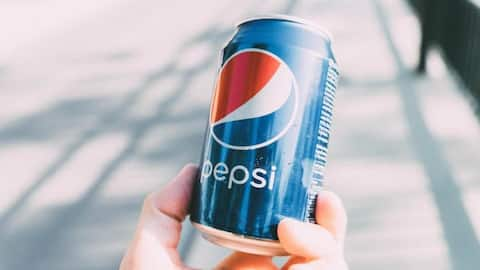It's surprising how popular soda Pepsi got its name
What's the story
Pepsi, a global soft drink giant, harbors a history that goes beyond its effervescent bubbles. In 1898, pharmacist Caleb Bradham crafted a concoction in North Carolina, USA, initially named "Brad's Drink." Unbeknownst to consumers, this humble creation starting from a local drugstore's shelves, embarked on a transformation into a sprawling beverage empire, a journey marked by a renaming that hinted at its surprising origins.
Information
Birth of a bubbly beverage
Pepsi-Cola, the brainchild of Caleb Bradham, emerged as a digestion aid. Brad's Drink, a mixture of sugar, water, caramel, lemon oil, and kola nuts, found its roots in New Bern's humble drugstore which was to soon transform into a global icon.
Name
Curious moniker change
On August 28, 1898, Caleb Bradham acknowledged the burgeoning potential of his concoction, prompting him to rebrand it as "Pepsi-Cola." This nomenclatural shift was not arbitrary; it found its roots in the term "dyspepsia," stressing its role in alleviating indigestion. Additionally, the renaming artfully incorporated the pivotal ingredient — kola nuts, reinforcing the beverage's inherent link to digestive well-being.
Shift
From Brad's Drink to Pepsi-Cola
The transition from "Brad's Drink" to "Pepsi-Cola" was more than a mere renaming. Bradham strategically acquired the name "Pep Kola" from a local competitor, envisioning the beverage not just as a refreshment but as a drink with health benefits, particularly aiding in digestion. This move laid the foundation for the birth of the Pepsi-Cola company.
Evolution
Evolution into a global giant
In 1902, Bradham formalized his soda venture by trademarking the Pepsi-Cola name, giving birth to the company that in the future will eventually become PepsiCo. Having evolved with time, Pepsi, with its recent announcement in March 2023 is signaling a shift—reducing sugar content by 57% in each bottle, aligning with contemporary health-conscious trends while preserving its historic legacy.
